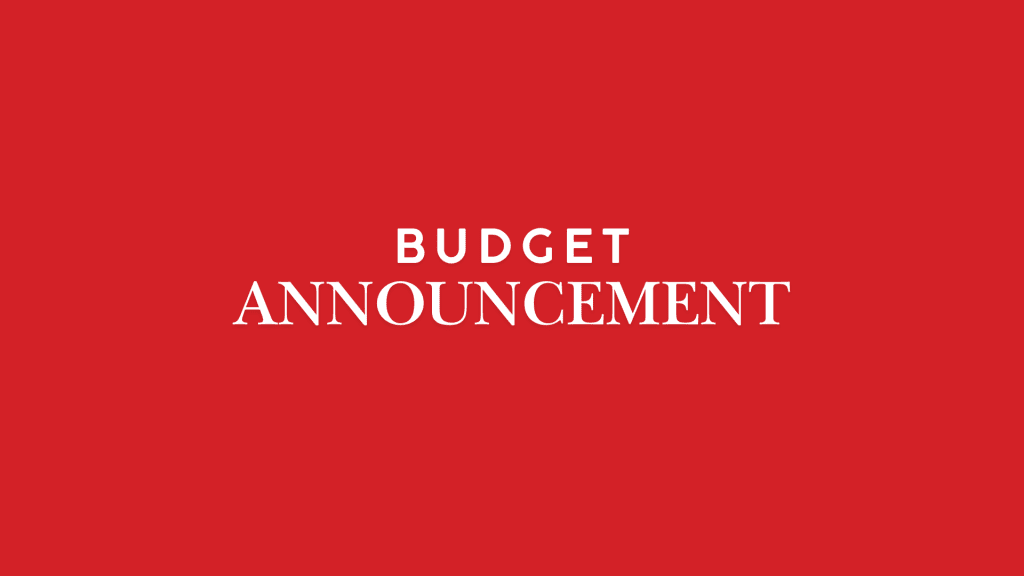
The Chancellor today set out the Budget. Announcements for Northern Ireland include:
- £18.2 billion for Northern Ireland Executive in 2025/26. This includes a £1.5 billion top-up through Barnett in 2025-6, with £1.2 billion for day-to-day spending and £270 million for capital investment.
- The Chancellor committed the UK Government to work closely with the Northern Ireland Executive on the Industrial Strategy, 10-year infrastructure strategy and the National Wealth Fund. These will mobilise billions of pounds of investment in the UK’s world-leading clean energy and growth industries.
- Confirmation that the investment in the Mid South West and Causeway Coast and Glens City Deals will continue, subject to a value for money assessment. The Mid South West and Causeway Coast and Glens Deals deliver a combined investment of £162 million over 15 years to rural areas in Northern Ireland.
- Commitment to develop an Enhanced Investment Zone in Northern Ireland and continuing to work closely with the Northern Ireland Executive to develop proposals.
- The UK Shared Prosperity Fund will continue at a reduced level for a further year with £900 million of funding UK wide.
- A corporate tax roadmap will be created.
- Implementation of 45%/40% rates of theatre, orchestra, museum and galleries tax relief from 1 April 2025. This tax relief package is worth more than £1 billion over the next 10 years to UK creative industries.
- A £2.5 billion extension to the 5p cut in fuel duty to 23 March 2025. This will save the average car driver £58, vans £123 and Heavy Goods Vehicles £9,100 next year.
- Under-served parts of Northern Ireland will benefit from the rollout of digital infrastructure enabled by over £500 million of UK-wide investment in Project Gigabit and the Shared Rural Network.
- Increased funding to £37.8 million for the Police Service of Northern Ireland’s Additional Security Fund and confirmed £8 million for the Executive Programme on Paramilitarism and Organised Crime.
- £730,000 of additional funding in 2025-26 to support schools in Northern Ireland through the transformation process as they work towards integrated status.
Public finances
The tax measures in the Budget include:
- The rate of Employers’ National Insurance will increase by 1.2 percentage points, to 15%. The Secondary Threshold – the level at which employers start paying national insurance on each employee’s salary – will reduce from £9,100 per year to £5,000 per year.
- The smallest businesses will be protected as the Employment Allowance will increase to £10,500 from £5,000, allowing firms in Northern Ireland to employ four National Living Wage workers full time without paying national insurance on their wages.
- Capital Gains Tax will increase from 10% to 18% for those paying the lower rate, and 20% to 24% for those paying the higher rate.
- From April 2026, agricultural property relief and business property relief will be reformed. The highest rate of relief will continue at 100% for the first £1 million of combined business and agricultural assets, fully protecting the majority of businesses and farms.
- From 2026-27 Air Passenger Duty (APD) for short and long-haul flights will increase by 13% to the nearest pound, a partial adjustment to account for previous high inflation.
The Budget can be found here and Corporate Tax roadmap here.
Londonderry Chamber
CONNECTING
BUSINESS
NORTHWEST
